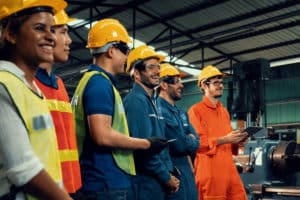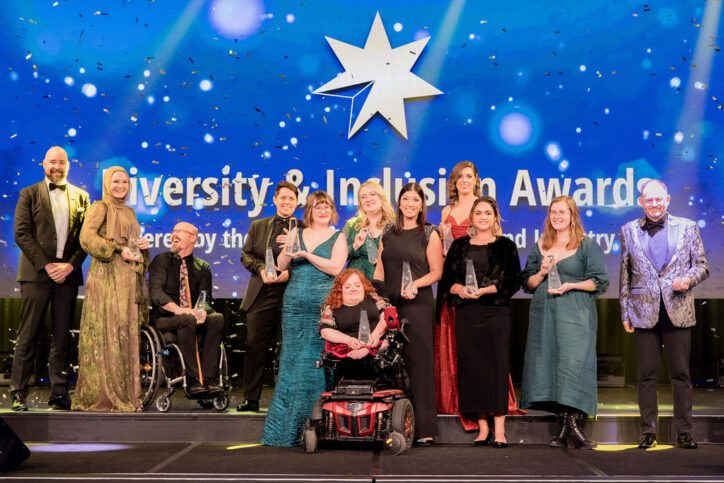 Let’s not put psychosocial health in the “too-hard basket”, says ECU’s Professor Tim Bentley, from the School of Business and Law.
Let’s not put psychosocial health in the “too-hard basket”, says ECU’s Professor Tim Bentley, from the School of Business and Law.
“The sector needs to manage psychosocial risk as they do physical hazards,” he says.
“The cost of inaction is too great.”
Bentley joined more than 1000 mining industry professionals and leaders at Optus Stadium on 4 August to hear and discuss safe workplaces and changing culture. The Mining Industry Summit: Driving Respect conference is a part of the State Government’s response from last year’s Enough is Enough report which looked at sexual harassment rates of women in the industry.
Rio Tinto’s Richard Cohen, Managing Director Port, Rail and Core Services – Iron Ore, told the audience he found the report “very confronting”. It followed an independent review by Rio Tinto last year which found 28% of women had experienced sexual harassment while working for the company – while 21 women reported actual or attempted rape – in the past five years.
“Probably the most confronting bit for me was that I didn’t understand how people were feeling in our workplace,” says Cohen, who has worked for the miner for nearly 30 years.
“I really had to question why I didn’t see that and why I wasn’t sympathetic and already doing something about it.”
Bentley, who is also director of ECU’s Mental Awareness, Respect and Safety (MARS) Centre, says the industry needs to implement a psychosocial safety culture, alongside its safety protocols.
“We know the industry has a world-class safety culture, but it is also important there is a strong psychosocial safety culture, and the sector applies the same risk-based approach to identifying psychosocial hazards – factors in the design or management of work that increases the risk of psychological or physical harm – as it does to ensuring operational safety,” Bentley says.
Start the conversation
Cohen says Rio Tinto has made some significant changes in the past two years, including the introduction of “purple banners” to kickstart a conversation in response to a psychosocial incident and a one-hour operational shutdown once a year to discuss respect.
“The purple banner is like a safety notice … it goes to a pre-start meeting, a supervisor’s got to have a conversation, engage the crew and talk about it,” he says.
“Twelve months ago, 18 months ago, that is not a conversation that could happen in a pre-start meeting.
“We’ve just got to get a little bit better today than we were yesterday; having conversations is really important.”
Training your workforce
Matt Butterworth, CCIWA’s Senior Work Health and Safety Practitioner, says companies need to ensure their supervisors, human resources and work health and safety professionals are trained in psychosocial hazards.
He says CCIWA offers one-day training programs focusing on key topics such as legislative obligations, identifying mental health issues and how to manage employees.
“These are perfect opportunities to make sure your WHS leaders are trained in best-practice responses to all psychosocial hazards,” he says.
“Our training is unique in the market because our content has not only a WHS focus but also an employee relations legal implications focus as well. Training is facilitated by CCIWA’s Senior WHS Practitioner and Employee Relations Senior Associate and will equip attendees with the skills to appropriately manage these issues and provide support.”
The next training course is on 28 August. For more information, click here.
Our Employee Relations Advice Centre is also available to respond to your questions on (08) 9365 7660, or via [email protected]






